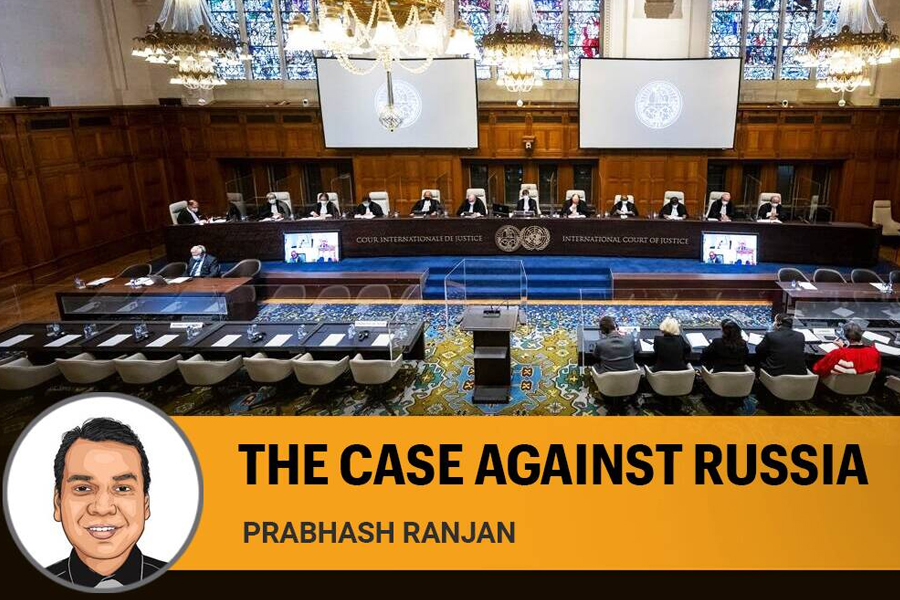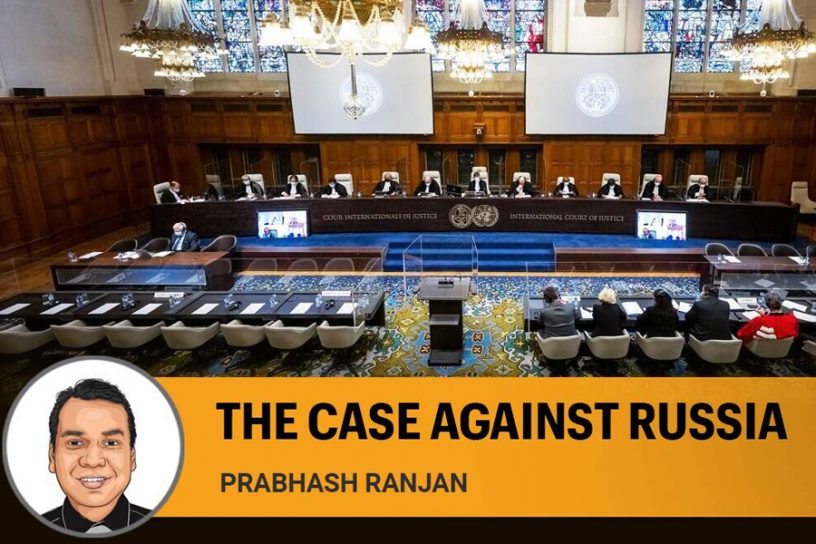
Just because authoritarian populist leaders like Vladimir Putin don’t care for international law does not mean its significance has diminished, argues the author.
Author
Prabhash Ranjan, Professor and Vice Dean, Jindal Global Law School, O.P. Jindal Global University, Sonipat, Haryana, India.
Summary
The International Court of Justice (ICJ) — the principal judicial organ of the United Nations (UN) — has ordered Russia to immediately suspend its military operations in Ukraine. In short, to end the war instantly.
This decision of far-reaching significance was rendered by the ICJ in response to Ukraine’s application for indication of provisional measures under Article 41 of the ICJ Statute.
Provisional measures under the ICJ Statute are the international equivalent of an interim injunction that can be provided by the court to preserve the rights of the parties pending a final decision on the merits of the case.
Ukraine moved the ICJ against Russia accusing it of falsely claiming that Ukrainians are committing genocide in their territory and using this untruthful premise to start an illegal war. This, Ukraine believes, breaches its rights under the Genocide Convention — a treaty that is binding to both Russia and Ukraine.
ICJ’s reasoning is in three parts. First, the court held that it had prima facie jurisdiction in the case because the subject matter fell under the Genocide Convention.
Russia tried to wriggle out of this dispute. It contended that its formal basis for use of force against Ukraine was its right to self-defence under Article 51 of the UN Charter (a patently illegal argument, but this issue is not before the ICJ).
The court rejected Russia’s argument and held that the existence of a dispute is a matter of substance, and not a question of form or procedure. Since 2014, Russia has been repeatedly accusing Ukraine of committing genocide in the Donetsk and Luhansk regions.
Just before the military invasion, Russian President Vladimir Putin mentioned ending the genocide in Ukraine as the reason to use force. Ukraine vehemently rejects this charge. Prima facie, this shows the existence of a “dispute” under Article IX of the Genocide Convention — the compromissory clause that bestows jurisdiction on the ICJ.
Published in: The Indian Express
To read the full article, please click here.


